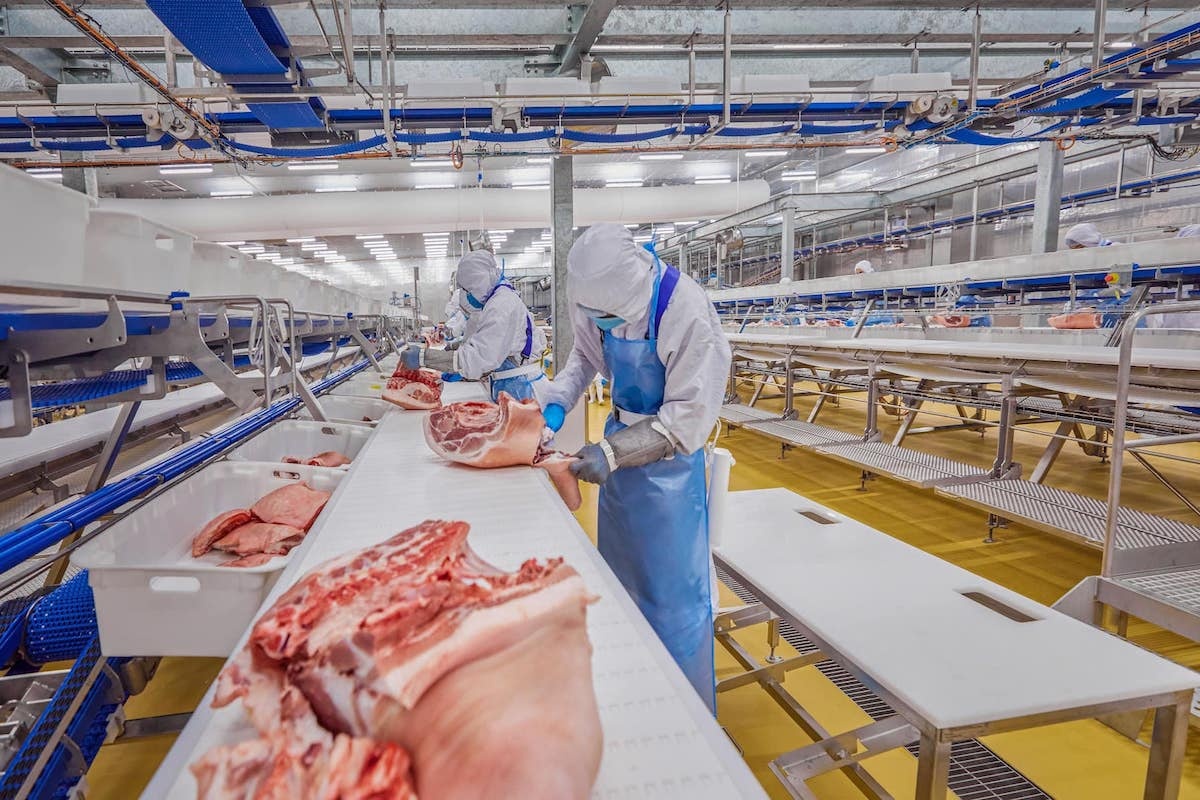Vietnam's pork industry faces shrinking consumption and domestic supply
 |
Ipsos Vietnam's latest study about pork and meat consumption in the country this year revealed that local people are consuming less pork. In 2018, each Vietnamese person ate about 32kg per year, but six years later, that figure has dropped to about 24kg per person.
From 2018 to 2020, pork accounted for the second-largest market share – about 36 per cent of the total meat protein consumption – but has encountered negative growth ever since the outbreak of African Swine Fever.
After 2020, similar to the trend in many countries in the region, meat consumption per capita in Vietnam is still on the rise thanks to the increase in the population's income and the fact that consumers have more choices for meat types.
Pork is a traditional food with a long-standing history in Vietnamese food culture, however, the amount of pork consumed per capita per year has not increased as expected. Pork consumption has so far reached only 23.5kg per capita.
Apart from the decrease in pork consumption, the domestic pork supply in Vietnam is also growing slowly. The supply of pork in the country is facing many difficulties, mostly because the re-herding at the end of April this year was still slow in all localities.
Over the past six months, sow farmers in Vietnam have faced two significant difficulties – African Swine Fever and rising feed prices. As shared by some swine farmers, the profit margin of their farms during the studied period was low, leading to many being afraid to re-herd or deciding to re-herd very cautiously.
Under the current context, the re-herding will continue to face a challenging period, as the African Swine Fever vaccine has not yet been announced and the continuous surge of feed prices is expected until the end of the year.
Ipsos forecasts the country's total sow herd will increase slightly by only 2-3 per cent by the end of October compared to the end of April.
The ex-farm price of live hogs will increase slightly by the end of October despite facing a continuous decline at the end of April and other drops in previous periods last year.
Ipsos believes that the pig farming industry is still pressured by the global supply chain disruption and rising agricultural material prices. It feels that the slight increase in pork meat prices by the end of this year is not likely to have a significant impact on the country's inflation rate because the laggard pork consumption has yet to bounce back completely from the impacts of the pandemic.
What the stars mean:
★ Poor ★ ★ Promising ★★★ Good ★★★★ Very good ★★★★★ Exceptional
Related Contents
Latest News
More News
- Masan Consumer names new deputy CEO to drive foods and beverages growth (February 23, 2026 | 20:52)
- Myriad risks ahead, but ones Vietnam can confront (February 20, 2026 | 15:02)
- Vietnam making the leap into AI and semiconductors (February 20, 2026 | 09:37)
- Funding must be activated for semiconductor success (February 20, 2026 | 09:20)
- Resilience as new benchmark for smarter infrastructure (February 19, 2026 | 20:35)
- A golden time to shine within ASEAN (February 19, 2026 | 20:22)
- Vietnam’s pivotal year for advancing sustainability (February 19, 2026 | 08:44)
- Strengthening the core role of industry and trade (February 19, 2026 | 08:35)
- Future orientations for healthcare improvements (February 19, 2026 | 08:29)
- Infrastructure orientations suitable for a new chapter (February 19, 2026 | 08:15)

 Tag:
Tag:


















 Mobile Version
Mobile Version